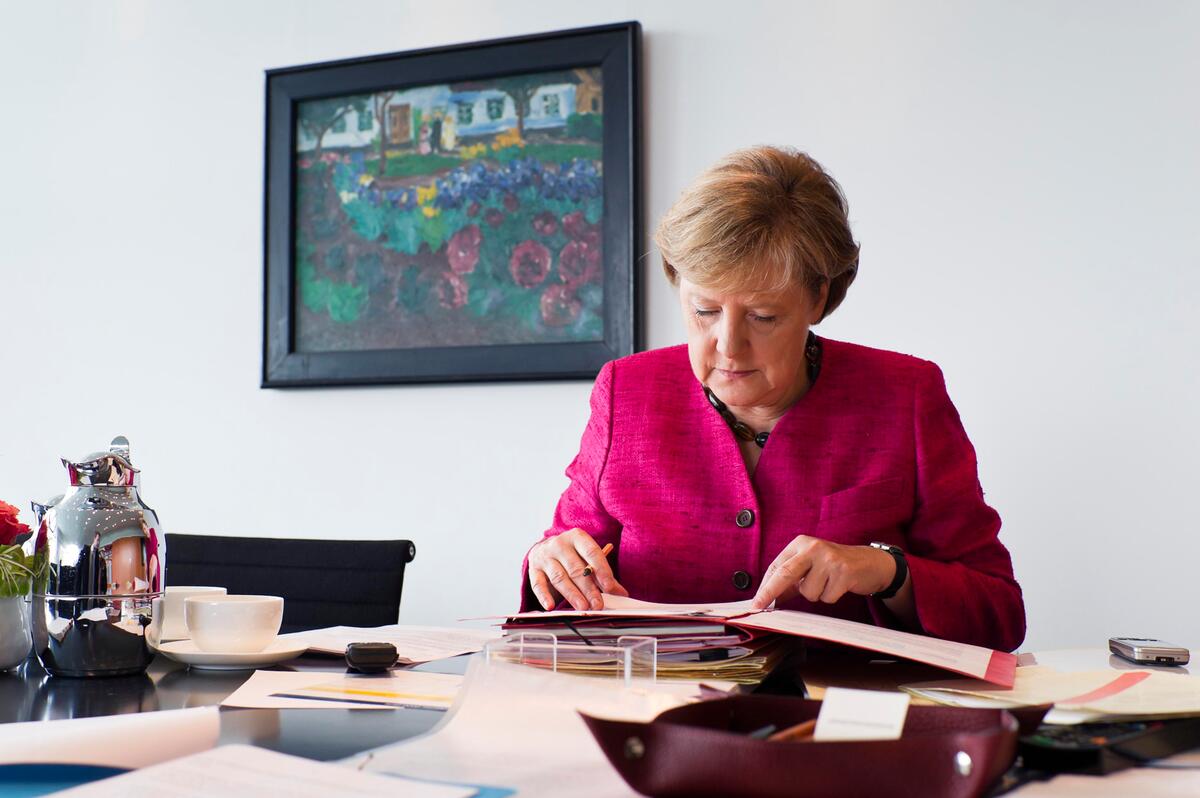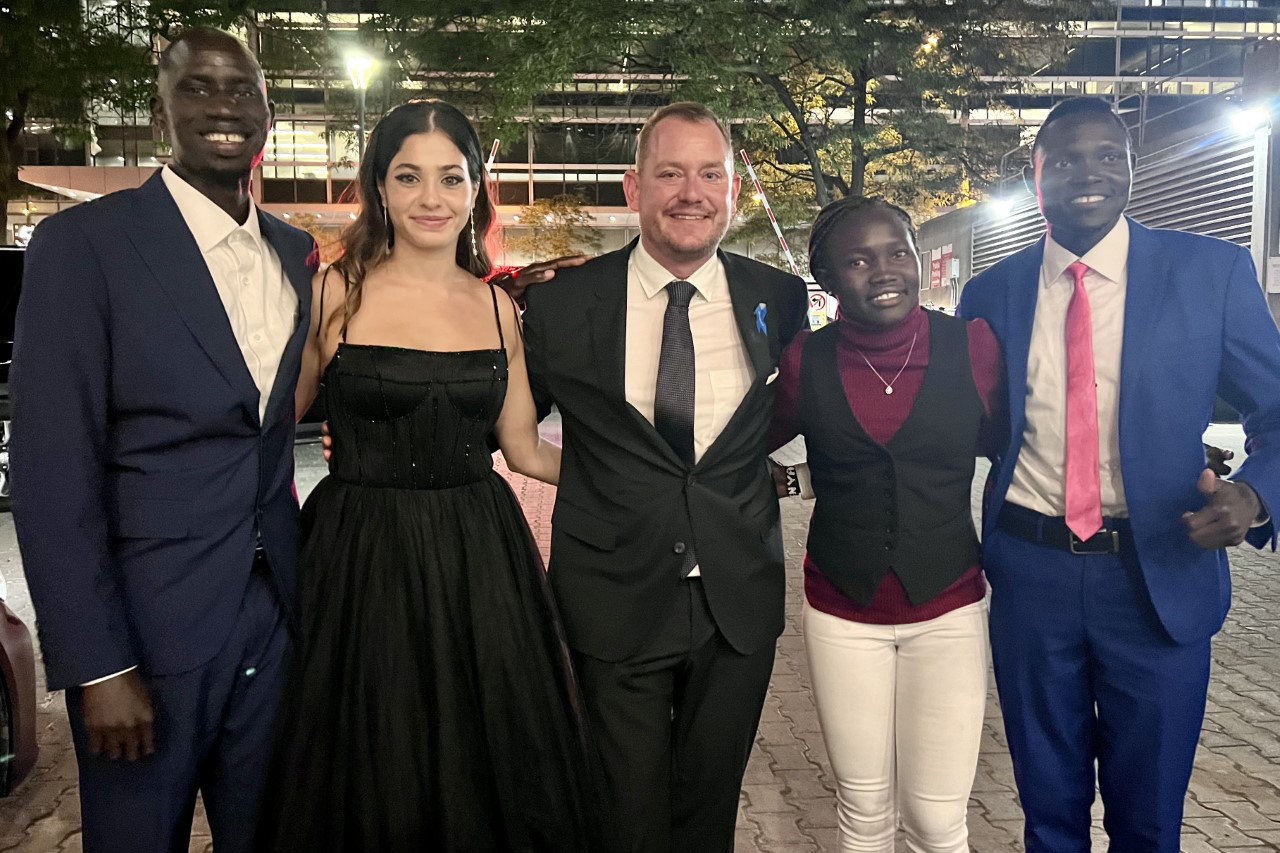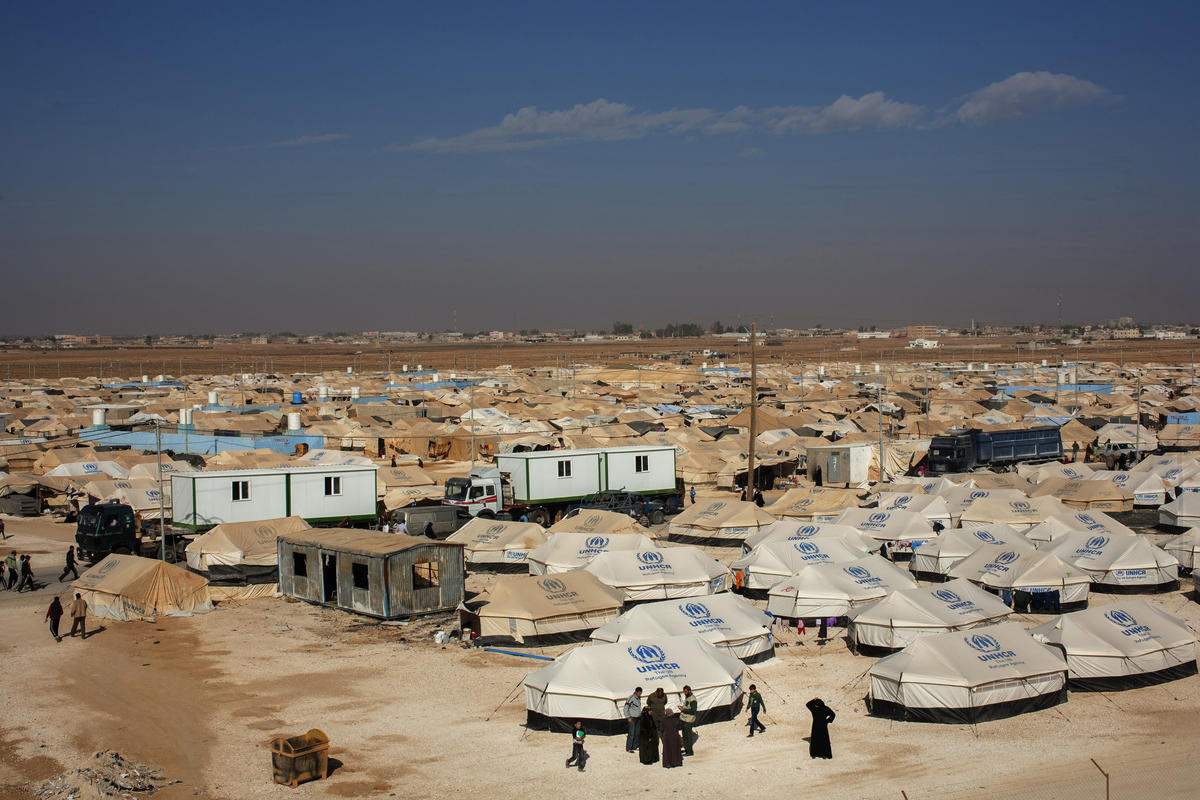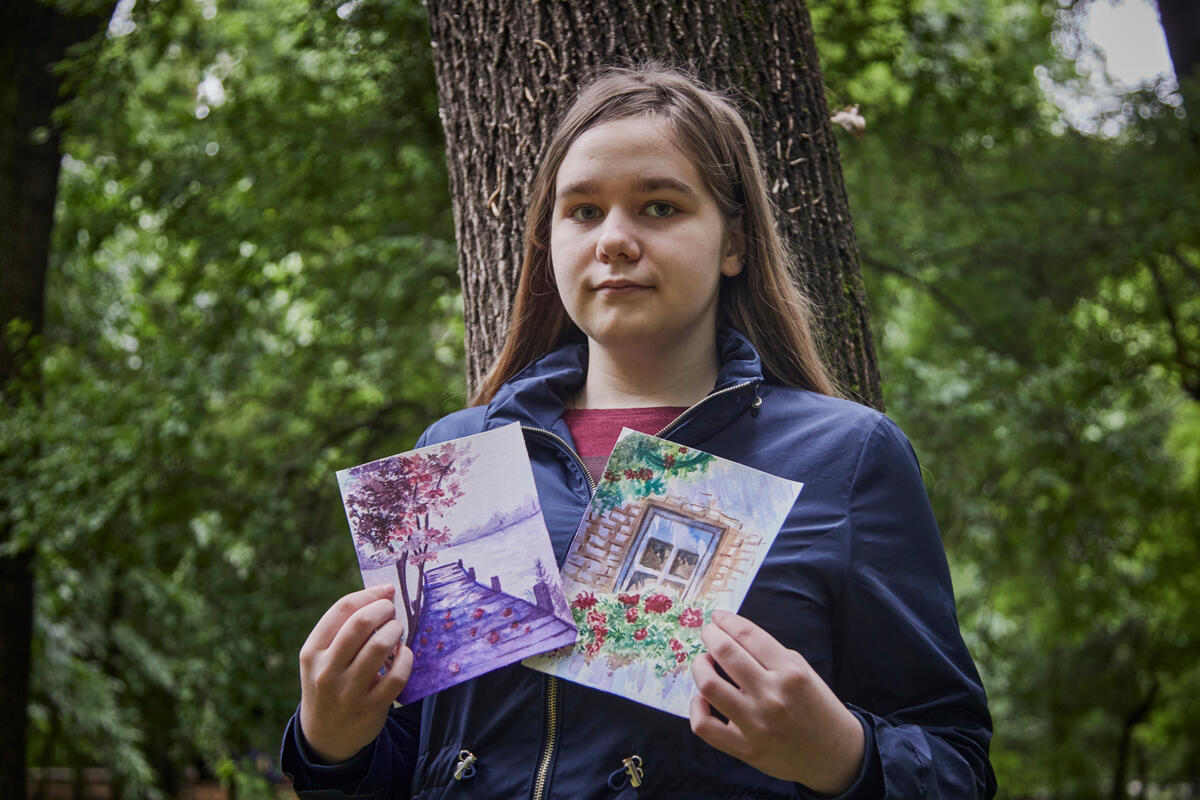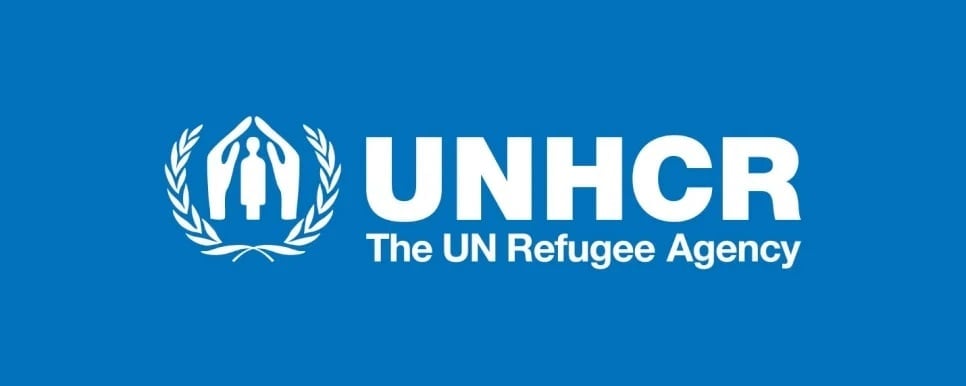German artist gives masterclass to Syrian refugee children in Iraq
German artist gives masterclass to Syrian refugee children in Iraq

ERBIL, Iraq, December 16 (UNHCR) - Award-winning graphic artist Reinhard Kleist says working with Syrian refugee children in northern Iraq as part of an ambitious multimedia project was the most emotional work he has ever done. "Unlike my work in Berlin, here I can interact directly with my subjects and see how they react to my drawings," the 43-year-old said after conducting a recent masterclass for children in Kawergosk refugee camp.
He was there to take part in a project by the Franco-German television channel, ARTE, to produce documentary programmes, interactive games, texts, photos and artwork from four refugee camps around the world.
Berlin-based Kleist is the author of several graphic novels and comic strips [http://www.reinhard-kleist.de]. He devised the art workshop for children aged 8-14 years as a way of giving something back to the refugee community in return for the chance to be with them and witness their daily lives.
"When I was coming here, I wanted to bring something with me to give to the refugees, to feel better myself. I thought that if I brought colouring pencils and paints, I would give the children something useful and, at the same time, learn about their feelings and their lives here. It could also help them forget the war and the things they saw in Syria," he said.
One of the children, 13-year-old Lilav, drew a street scene from her neighbourhood in Damascus. "The thing I miss most is school and my friends in Syria," she said. Zadine, also 13, drew a petrol station near his home in Hassakeh, north-eastern Syria. "I miss my country very much," he said. "When I grow up, I would like to be an engineer."
Simon Ravelli, who manages Kawergosk camp for UNHCR implementing partner, ACTED, welcomed the initiative. "It gives a voice to the refugees living in a difficult context far from their homes. It is also a way for the children to get access through the workshop to different experiences, get new artistic skills and express themselves."
More than 1.1 million Syrian children are now refugees. A major new report released recently by UNHCR documents how Syrian refugee children are suffering from profound psychological distress, loneliness and trauma as a result of their experiences. The report, "The Future of Syria - Refugee Children in Crisis," covers refugees in Lebanon and Jordan. It details the fracturing of families, with more than 70,000 Syrian refugee families living without fathers, and over 3,700 refugee children unaccompanied or separated from both parents.
Kawergosk camp provides shelter to more than 13,000 Syrian refugees. It was set up last August, along with five other camps, in the wake of a large influx from Syria into the Kurdistan Region of Iraq.
By William Spindler in Erbil, Iraq



